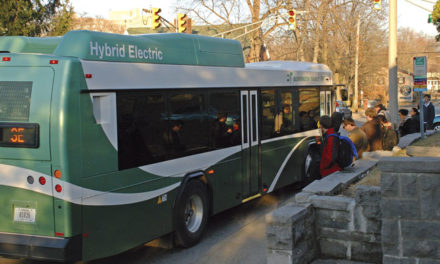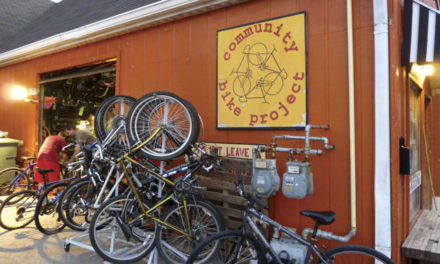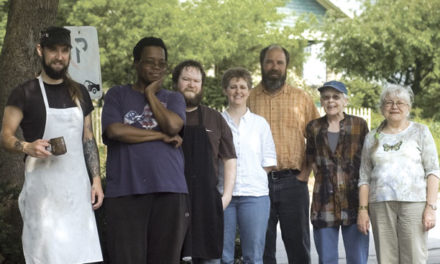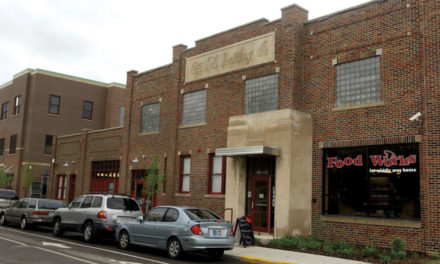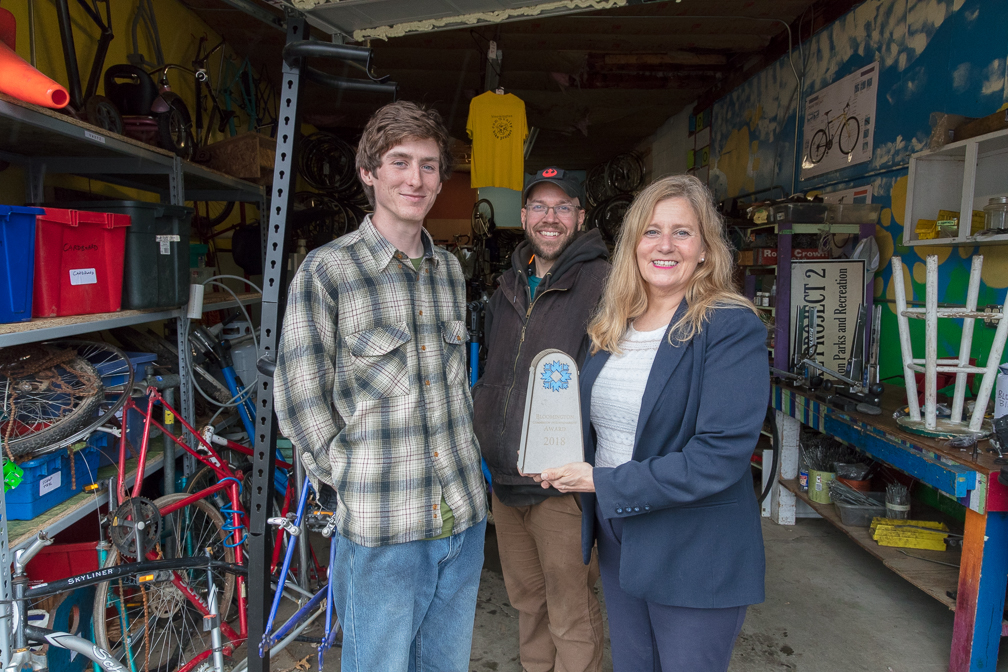
(l-r) Jack Cathcart, Ryan Conway, and Teddie Phillipson-Mower. Photo by James Kellar
BY SUSAN M. BRACKNEY
Operating since the mid-1990s, the Center for Sustainable Living (CSL) has long had a hand in helping advance community ventures like the Bloomington Winter Farmers’ Market and the Bloomington Bike Project. In 2008, the nonprofit organization’s efforts led the National Wildlife Federation to officially recognize Bloomington as a certified Community Wildlife Habitat.
“Sometimes it just flies under the radar,” CSL Outreach and Communications Coordinator Jack Cathcart admits. But not anymore. The Bloomington Commission on Sustainability (BCOS) recently presented its first-ever Sustainability Awards in individual, business, and nonprofit categories. The Nonprofit Sustainability Award went to the CSL.
“We settled on three basic criteria—initiative, impact, and innovation,” BCOS Commissioner Teddie Phillipson-Mower says. “As far as the rankings, the Center for Sustainable Living came out on top. They’ve been around for a long time. They’ve done such magnificent work—and they’re still doing magnificent work.”
Besides criteria rankings, BCOS also weighed input from community members. “We asked community members what they thought, without telling them what it was for. It was quite a process.”
The Bloomington Bike Project, the Glenn Carter Memorial ToolShare, and the textile reuse education initiative, Discardia—each a CSL program—were frequently cited as having had strong, personal impacts. “CSL has 11 different projects they’re doing,” Phillipson-Mower says. “That’s just a real credit to them. Sometimes you get people who are doing something out of ego—not these people. They truly believe in community-building, relationship-building, and giving.”
Acting as an eco-incubator, the CSL helps others start and sustain new programs. “For a local project that has a mission that aligns with ours, we can grant them immediate nonprofit status, along with a website, hosting, a bank account if they need it, and additional community resources,” Cathcart explains.
Promoting universal access to healthy food, skill- and knowledge-sharing, and “the development of a local solidarity economy” are key CSL components. Two of the group’s newest projects are the Healthful Food for All Fund and Monroe County Solar for All—providing low-income households access to fresh, local food and solar energy.
To learn more, visit simplycsl.org.


